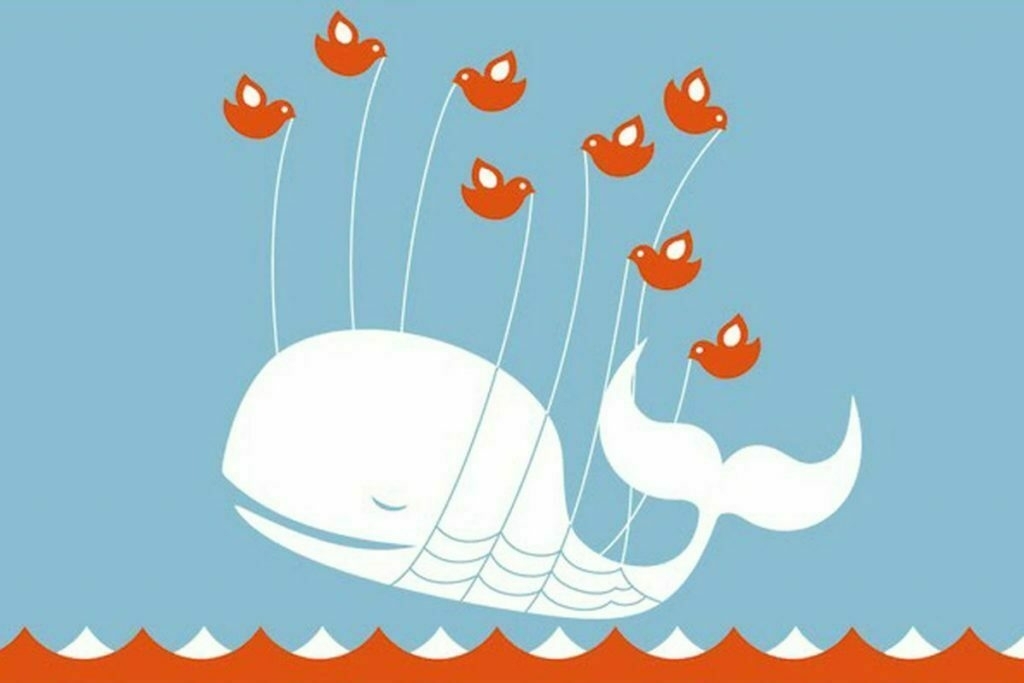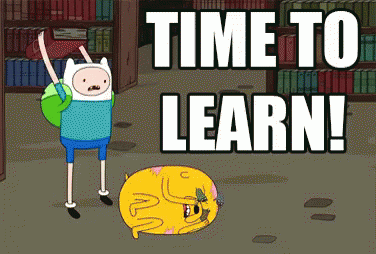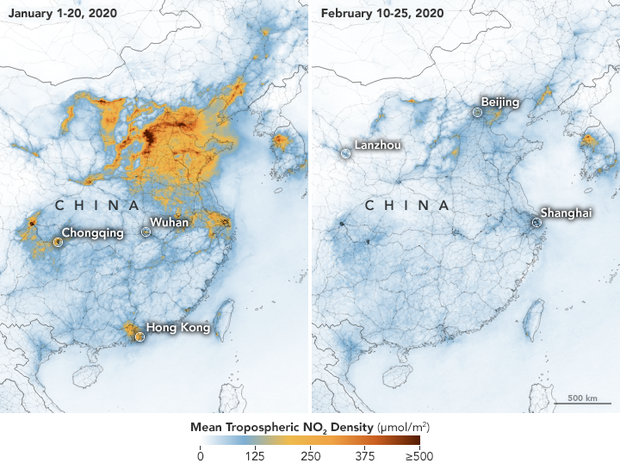- Reinforcement of the connection between productivity and human value
- Creation of 'bullshit jobs'
- Could deny people chance to engage in other pursuits (if poorly implemented)
- Potential to leave behind prior who cannot work (disability / other health concerns)
- Seems didactic and disciplinary
Saturday soundings
Black Lives Matter. The money from this month's kind supporters of Thought Shrapnel has gone directly to the 70+ community bail funds, mutual aid funds, and racial justice organizers listed here.
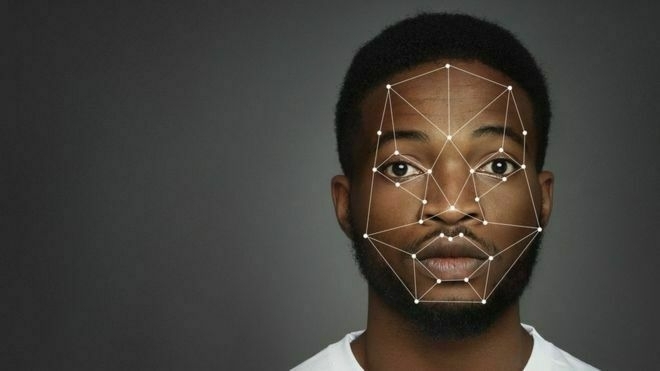
IBM abandons 'biased' facial recognition tech
A 2019 study conducted by the Massachusetts Institute of Technology found that none of the facial recognition tools from Microsoft, Amazon and IBM were 100% accurate when it came to recognising men and women with dark skin.
And a study from the US National Institute of Standards and Technology suggested facial recognition algorithms were far less accurate at identifying African-American and Asian faces compared with Caucasian ones.
Amazon, whose Rekognition software is used by police departments in the US, is one of the biggest players in the field, but there are also a host of smaller players such as Facewatch, which operates in the UK. Clearview AI, which has been told to stop using images from Facebook, Twitter and YouTube, also sells its software to US police forces.
Maria Axente, AI ethics expert at consultancy firm PwC, said facial recognition had demonstrated "significant ethical risks, mainly in enhancing existing bias and discrimination".
BBC News
Like many newer technologies, facial recognition is already a battleground for people of colour. This is a welcome, if potential cynical move, by IBM who let's not forget literally provided technology to the Nazis.
How Wikipedia Became a Battleground for Racial Justice
If there is one reason to be optimistic about Wikipedia’s coverage of racial justice, it’s this: The project is by nature open-ended and, well, editable. The spike in volunteer Wikipedia contributions stemming from the George Floyd protests is certainly not neutral, at least to the extent that word means being passive in this moment. Still, Koerner cautioned that any long-term change of focus to knowledge equity was unlikely to be easy for the Wikipedia editing community. “I hope that instead of struggling against it they instead lean into their discomfort,” she said. “When we’re uncomfortable, change happens.”
Stephen Harrison (Slate)
This is a fascinating glimpse into Wikipedia and how the commitment to 'neutrality' affects coverage of different types of people and event feeds.
Deeds, not words
Recent events have revealed, again, that the systems we inhabit and use as educators are perfectly designed to get the results they get. The stated desire is there to change the systems we use. Let’s be able to look back to this point in two years and say that we have made a genuine difference.
Nick Dennis
Some great questions here from Nick, some of which are specific to education, whereas others are applicable everywhere.
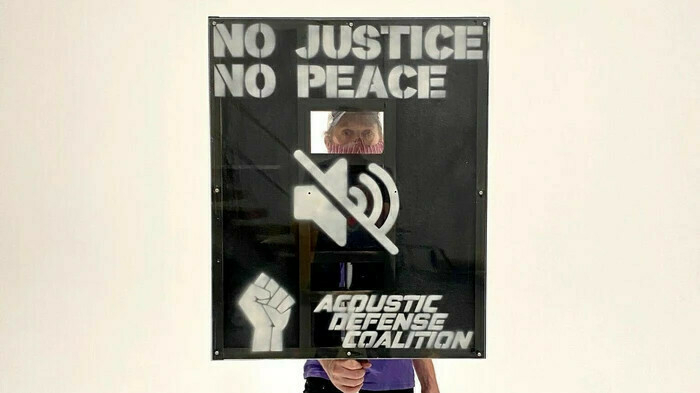
Audio Engineers Built a Shield to Deflect Police Sound Cannons
Since the protests began, demonstrators in multiple cities have reported spotting LRADs, or Long-Range Acoustic Devices, sonic weapons that blast sound waves at crowds over large distances and can cause permanent hearing loss. In response, two audio engineers from New York City have designed and built a shield which they say can block and even partially reflect these harmful sonic blasts back at the police.
Janus Rose (Vice)
For those not familiar with the increasing militarisation of police in the US, this is an interesting read.
CMA to look into Facebook's purchase of gif search engine
The Competition and Markets Authority (CMA) is inviting comments about Facebook’s purchase of a company that currently provides gif search across many of the social network’s competitors, including Twitter and the messaging service Signal.
[...]
[F]or Facebook, the more compelling reason for the purchase may be the data that Giphy has about communication across the web. Since many services that integrate with the platform not only use it to find gifs, but also leave the original clip hosted on Giphy’s servers, the company receives information such as when a message is sent and received, the IP address of both parties, and details about the platforms they are using.
Alex Hern (The Guardian)
In my 2012 TEDx Talk I discussed the memetic power of gifs. Others might find this news surprising, but I don't think I would have been surprised even back then that it would be such a hot topic in 2020.
Also by the Hern this week is an article on Twitter's experiments around getting people to actually read things before they tweet/retweet them. What times we live in.
Human cycles: History as science
To Peter Turchin, who studies population dynamics at the University of Connecticut in Storrs, the appearance of three peaks of political instability at roughly 50-year intervals is not a coincidence. For the past 15 years, Turchin has been taking the mathematical techniques that once allowed him to track predator–prey cycles in forest ecosystems, and applying them to human history. He has analysed historical records on economic activity, demographic trends and outbursts of violence in the United States, and has come to the conclusion that a new wave of internal strife is already on its way1. The peak should occur in about 2020, he says, and will probably be at least as high as the one in around 1970. “I hope it won't be as bad as 1870,” he adds.
Laura Spinney (Nature)
I'm not sure about this at all, because if you go looking for examples of something to fit your theory, you'll find it. Especially when your theory is as generic as this one. It seems like a kind of reverse fortune-telling?

Universal Basic Everything
Much of our economies in the west have been built on the idea of unique ideas, or inventions, which are then protected and monetised. It’s a centuries old way of looking at ideas, but today we also recognise that this method of creating and growing markets around IP protected products has created an unsustainable use of the world’s natural resources and generated too much carbon emission and waste.
Open source and creative commons moves us significantly in the right direction. From open sharing of ideas we can start to think of ideas, services, systems, products and activities which might be essential or basic for sustaining life within the ecological ceiling, whilst also re-inforcing social foundations.
TessyBritton
I'm proud to be part of a co-op that focuses on openness of all forms. This article is a great introduction to anyone who wants a new way of looking at our post-COVID future.
World faces worst food crisis for at least 50 years, UN warns
Lockdowns are slowing harvests, while millions of seasonal labourers are unable to work. Food waste has reached damaging levels, with farmers forced to dump perishable produce as the result of supply chain problems, and in the meat industry plants have been forced to close in some countries.
Even before the lockdowns, the global food system was failing in many areas, according to the UN. The report pointed to conflict, natural disasters, the climate crisis, and the arrival of pests and plant and animal plagues as existing problems. East Africa, for instance, is facing the worst swarms of locusts for decades, while heavy rain is hampering relief efforts.
The additional impact of the coronavirus crisis and lockdowns, and the resulting recession, would compound the damage and tip millions into dire hunger, experts warned.
Fiona Harvey (The Guardian)
The knock-on effects of COVID-19 are going to be with us for a long time yet. And these second-order effects will themselves have effects which, with climate change also being in the mix, could lead to mass migrations and conflict by 2025.
Mice on Acid
What exactly a mouse sees when she’s tripping on DOI—whether the plexiglass walls of her cage begin to melt, or whether the wood chips begin to crawl around like caterpillars—is tied up in the private mysteries of what it’s like to be a mouse. We can’t ask her directly, and, even if we did, her answer probably wouldn’t be of much help.
Cody Kommers (Nautilus)
The bit about 'ego disillusion' in this article, which is ostensibly about how to get legal hallucinogens to market, is really interesting.
Header image by Dmitry Demidov
We have it in our power to begin the world over again
UBI, GDP, and Libertarian Municipalism
It's sobering to think that, in years to come, historians will probably refer to the 75 years between the end of the Second World War and the start of this period we've just begun with a single name.
Whatever we end up calling it, one thing is for sure: what comes next can't be a continuation of what went before. We need a sharp division of life pre- and post-pandemic.
That's because our societies have been increasingly unequal since 2008, when the global financial crisis meant that the rich consolidated their position while the rest of us paid for the mistakes of bankers and the global elite.
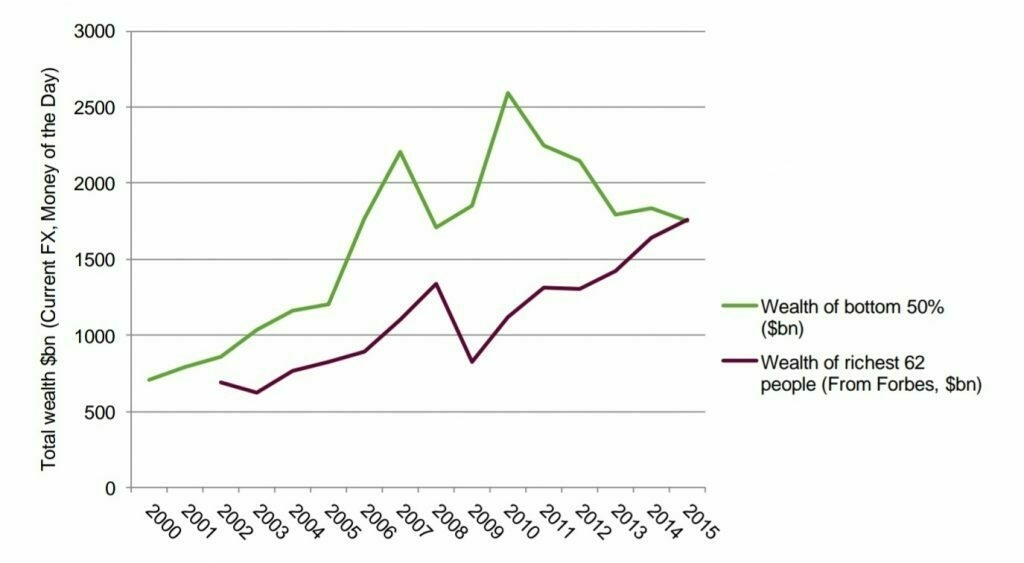
So what can we do about this? What should we be demanding once we're allowed back out of our houses? What should we organise against?
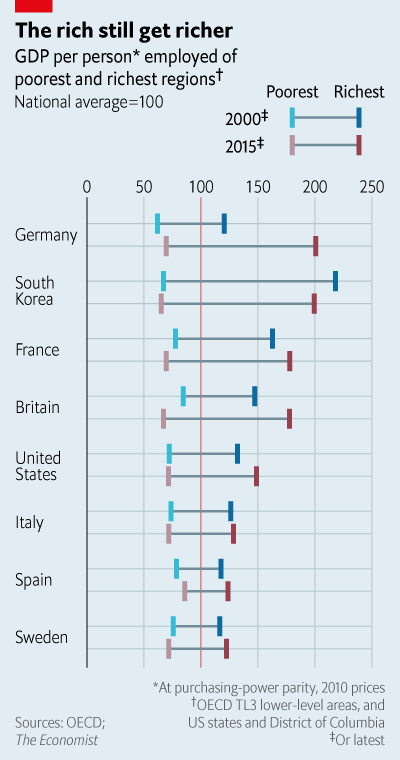
I've been a proponent of Universal Basic Income over the last few years, but, I have to say that the closer it comes to being a reality, the more concerns I have about its implementation. Even if it's brought in by a left-leaning government, there's still the danger that it's subsequently used as a weapon against the poor by a new adminstration.
That's why I was interested in this section from a book I'm reading at the moment. Writing in Future Histories, Lizzie O'Shea suggests that we need to think beyond UBI to include other approaches:
Alongside this, we need to consider how productive, waged work could be more democratically organized to meet the needs of society rather than individual companies. To this end, one commonly suggested alternative to a basic income is a job guarantee. The idea is that the government offers a job to anyone who wants one and is able to work, in exchange for a minimum wage. Jobs could be created around infrastructure projects, for example, or care work. Government spending on this enlarged public sector world act like a kind of Keynesian expenditure, to stimulate the economy and buffer the population against the volatility of the private labor market. Modeling suggests that this would be more cost-effective than a basic income (often critiqued for being too expensive) and avoid many of the inflationary perils that might accompany basic income proposals. It could also be used to jump-start sections of the economy that are politically important, like green energy, carbon reduction and infrastructure. A job guarantee could help us collectively decide what kind of work is must urgent and necessary and to prioritize that through democratically accountable representatives.
Lizzie O'Shea, Future Histories
Of course, as she points out, there are a number of drawbacks to a job guarantee scheme:
Nevertheless, O'Shea believes that a combination of a job guarantee, UBI, and government-provided services is the way forward:
Ultimately, we need a combination of these programs. We need the liberty offered by a basic income, the sustainability promised by the organization of a job guarantee, and the protection of dignity offered by centrally planned essential services. It is like a New Deal for the age of automation, a ground rent for the digital revolution, in which the benefits of accelerated productive capacity are shared among everyone. From each according to his ability, to each according to their need - a twenty-first-century vision of socialism. "We have it in our power to begin the world over again," wrote Thomas Paine in an appendix to Common Sense, just before one of the most revolutionary periods in human history. We have a similar opportunity today.
Lizzie O'Shea, Future Histories
While I don't disagree that we will continue to need "the protection of dignity offered by centrally planned essential services," I'm not so sure that giving the state so much power over our lives is a good thing. I think this approach papers over the cracks of neoliberalism, giving billionaires and capitalists a get-out-of-jail-free card.
Instead, I'd like to see a post-pandemic breakup of mega corporations. While a de jure limit on how much one individual or one organisation can be worth is likely to be unworkable, there's ways we can make de facto limits on this a reality.
People respond to incentives, including how easy or hard it is to do something. I know from experience how easy it is to set up a straightforward limited company in the UK and how difficult it is to set up a co-operative. To get to where we need to be, we need to ensure collective decision-making is the norm within organisations owned by workers. And then these worker-owned organisations need to co-ordinate for the good of everyone.
I'm a huge believer in decentralisation, not just technologically but politically and socially; we don't need governments, billionaires, or celebrities telling us what to do with our lives. We need to think wider and deeper. My current thinking aligns with this section on libertarian municipalism from the Wikipedia page on the political philosopher Murray Bookchin:
Libertarian Municipalism constitutes the politics of social ecology, a revolutionary effort in which freedom is given institutional form in public assemblies that become decision-making bodies.
Wikipedia
...or, in other words:
The overriding problem is to change the structure of society so that people gain power. The best arena to do that is the municipality—the city, town, and village—where we have an opportunity to create a face-to-face democracy.
Wikipedia
Some people think that, in these days of super-fast connections to anyone on the planet, that nation states are dead, and that we should be building communities on the blockchain. I have yet to see a proposal of how this would be workable in practice; everything I've seen so far extrapolates naïvely from what's technically possible to what should be socially desirable.
Yes, we can and should have solidarity with people around the world with whom we work and socialise. But this does not negate the importance of decision-making at a local level. Gaming clans don't yet do bin collections, and colleagues in a different country can't fix the corruption riddling your local government.
Ultimately, then, we're going to need a whole new politics and social contract after the pandemic. I sincerely hope we manage to grasp the nettle and do something radically different. I'm not sure how we'll all survive if the rich, once again, come out of all this even richer than before.
BONUS: check out this 1978 speech from Murray Bookchin where he calls for utopia, not futurism.
Enjoy this? Sign up for the weekly roundup, become a supporter, or download Thought Shrapnel Vol.1: Personal Productivity!
Quotation-as-title from Thomas Paine. Header image by Stas Knop.
Is UBI 'hush money'?
Over the last few years, I’ve been quietly optimistic about Universal Basic Income, or ‘UBI’. It’s an approach that seems to have broad support across the political spectrum, although obviously for different reasons.
A basic income, also called basic income guarantee, universal basic income (UBI), basic living stipend (BLS), or universal demogrant, is a type of program in which citizens (or permanent residents) of a country may receive a regular sum of money from a source such as the government. A pure or unconditional basic income has no means test, but unlike Social Security in the United States it is distributed automatically to all citizens without a requirement to notify changes in the citizen's financial status. Basic income can be implemented nationally, regionally or locally. (Wikipedia)Someone who's thinking I hugely respect, Douglas Rushkoff, thinks that UBI is a 'scam':
The policy was once thought of as a way of taking extreme poverty off the table. In this new incarnation, however, it merely serves as a way to keep the wealthiest people (and their loyal vassals, the software developers) entrenched at the very top of the economic operating system. Because of course, the cash doled out to citizens by the government will inevitably flow to them.I have to agree with Rushkoff when he talks about UBI leading to more passivity and consumption rather than action and ownership:Think of it: The government prints more money or perhaps — god forbid — it taxes some corporate profits, then it showers the cash down on the people so they can continue to spend. As a result, more and more capital accumulates at the top. And with that capital comes more power to dictate the terms governing human existence.
Rushkoff calls UBI 'hush money', a method for keeping the masses quiet while those at the top become ever more wealthy. Unfortunately, we live in the world of the purist, where no action is good enough or pure enough in its intent. I agree with Rushkoff that we need more worker ownership of organisations, but I appreciate Noam Chomsky's view of change: you don't ignore an incremental improvement in people's lives, just because you're hoping for a much bigger one round the corner.Meanwhile, UBI also obviates the need for people to consider true alternatives to living lives as passive consumers. Solutions like platform cooperatives, alternative currencies, favor banks, or employee-owned businesses, which actually threaten the status quo under which extractive monopolies have thrived, will seem unnecessary. Why bother signing up for the revolution if our bellies are full? Or just full enough?
Under the guise of compassion, UBI really just turns us from stakeholders or even citizens to mere consumers. Once the ability to create or exchange value is stripped from us, all we can do with every consumptive act is deliver more power to people who can finally, without any exaggeration, be called our corporate overlords.
Source: Douglas Rushkoff
Is UBI 'hush money'?
Over the last few years, I’ve been quietly optimistic about Universal Basic Income, or ‘UBI’. It’s an approach that seems to have broad support across the political spectrum, although obviously for different reasons.
A basic income, also called basic income guarantee, universal basic income (UBI), basic living stipend (BLS), or universal demogrant, is a type of program in which citizens (or permanent residents) of a country may receive a regular sum of money from a source such as the government. A pure or unconditional basic income has no means test, but unlike Social Security in the United States it is distributed automatically to all citizens without a requirement to notify changes in the citizen's financial status. Basic income can be implemented nationally, regionally or locally. (Wikipedia)Someone who's thinking I hugely respect, Douglas Rushkoff, thinks that UBI is a 'scam':
The policy was once thought of as a way of taking extreme poverty off the table. In this new incarnation, however, it merely serves as a way to keep the wealthiest people (and their loyal vassals, the software developers) entrenched at the very top of the economic operating system. Because of course, the cash doled out to citizens by the government will inevitably flow to them.I have to agree with Rushkoff when he talks about UBI leading to more passivity and consumption rather than action and ownership:Think of it: The government prints more money or perhaps — god forbid — it taxes some corporate profits, then it showers the cash down on the people so they can continue to spend. As a result, more and more capital accumulates at the top. And with that capital comes more power to dictate the terms governing human existence.
Rushkoff calls UBI 'hush money', a method for keeping the masses quiet while those at the top become ever more wealthy. Unfortunately, we live in the world of the purist, where no action is good enough or pure enough in its intent. I agree with Rushkoff that we need more worker ownership of organisations, but I appreciate Noam Chomsky's view of change: you don't ignore an incremental improvement in people's lives, just because you're hoping for a much bigger one round the corner.Meanwhile, UBI also obviates the need for people to consider true alternatives to living lives as passive consumers. Solutions like platform cooperatives, alternative currencies, favor banks, or employee-owned businesses, which actually threaten the status quo under which extractive monopolies have thrived, will seem unnecessary. Why bother signing up for the revolution if our bellies are full? Or just full enough?
Under the guise of compassion, UBI really just turns us from stakeholders or even citizens to mere consumers. Once the ability to create or exchange value is stripped from us, all we can do with every consumptive act is deliver more power to people who can finally, without any exaggeration, be called our corporate overlords.
Source: Douglas Rushkoff




